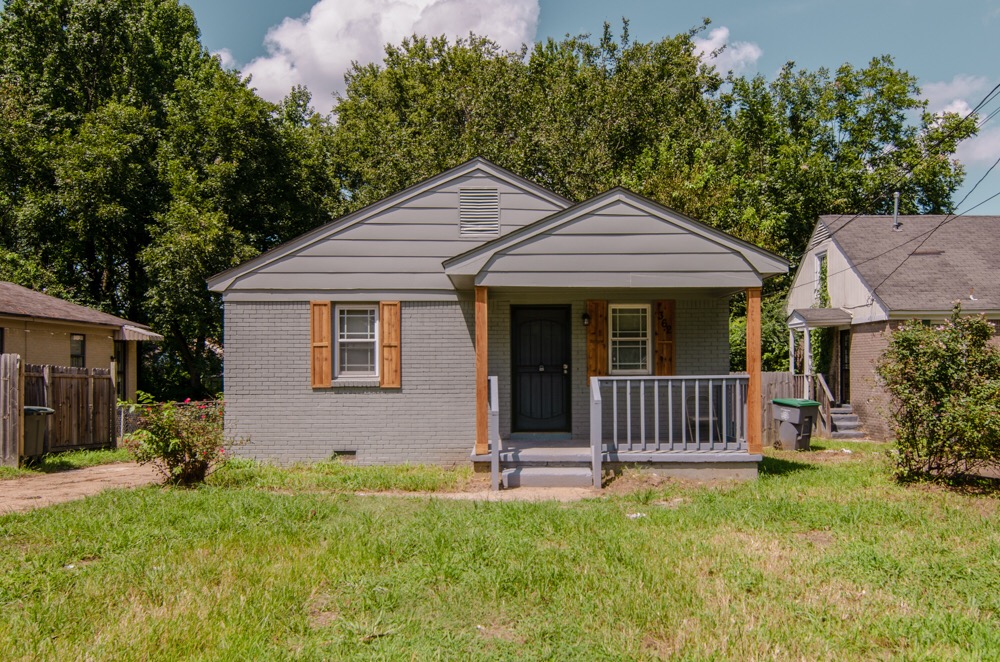Poor credit can prevent you from acquiring the funding you need to purchase real estate investment property. Even if you have the cash for a down payment, it’s unlikely you’ll be able to get approved for a mortgage through conventional financing. The good news is, you can improve your credit by taking thoughtful action. In order to do that, it helps to understand exactly how lenders look at your credit and which factors most impact their decision, as well as which factors have less influence. Once you see a little bit behind the scenes, you’ll be better equipped to tackle your own credit issues in an intelligent and purposeful manner.
There are myriad residential property loan programs out there, and each loan program has its own unique criteria, so for details you’ll need to speak to a mortgage lender about the particular program you’re interested in. We spoke with veteran loan officer Ransom Kelly of Assurance Financial in Birmingham, Alabama, who gave us tremendous insight into how lenders evaluate your credit report.
What Do Lenders Look At?
Lenders look at several things on your credit report. Following are the main indicators of your risk factor:
Credit Score
Your credit score is the result of a complex algorithm that comprises factors like how well you pay your bills, how you handle debt and more. What’s confusing for many people is that there are now more credit scores than ever. There’s the FICO score and the Vantage score and each of those have sub categories of scores that can vary from the “main” score. Then you have the three credit reporting agencies; Transunion, Equifax and Experian, and your score can vary among those as well.
So how do lenders look at these scores when you apply for a mortgage? Ransom Kelly says that most lenders rely at the middle score. In other words, they don’t take the highest or the lowest; they use the middle number for the borrower’s credit score indicator.
But what’s most interesting is that the free online credit scores you get with many credit card companies these days aren’t precise. “Those free score numbers you can access through your credit card company’s dashboard are based on soft pulls,” says Ransom. “Lenders do hard pulls, which dive deep into your credit history. Unfortunately, the credit score you see online could be significantly higher (or lower) than your actual score used from a mortgage credit report.”
When you’re ready to look into a loan, you can call a lender in your area to find out the minimum score you’ll need to qualify.
Debt-to-Income Ratio
Your debt-to-income ratio is a calculation of how much you owe out versus how much you bring in. You can calculate this by yourself. The formula looks like this:
recurring monthly bills (rent/mortgage, car payment, credit cards, etc.)
/ gross monthly income = debt-to-income ratio
If you want to impress lenders as well as improve your credit score, start paying off your debts while simultaneously either maintaining or growing your income.
Collections
If you have collections listed on your credit report, you may assume there’s no way you’d qualify for a mortgage. However, there are caveats you should be aware of. “Collections aren’t necessarily approval killers,” says Kelly. “Every situation is considered on a case by case basis. For example, medical collections aren’t typically weighted the same during underwriting review as other collection accounts from vendors. Medical collections get a pass because they’re often exorbitant charges that the person incurred unintentionally. Charge-offs don’t count against you if they’ve been charged off and the balance owed is zero; although they may still have a detrimental impact on your credit score.”
Other factors affect how lenders look at collections, too, according to Kelly, whose loan officer career has spanned nearly a decade. “You can have a total of up to $2,000 in collections and it could have minimal influence on the lending decision.”
However, don’t forget that collection accounts do bring down your credit score. So if you have collection accounts under $2,000 that you can afford to pay off, it might be worth doing so in order to raise your overall score.
Late Payments
Late payments listed on your credit report can be problematic, says Kelly. “You can’t have any late mortgage payments in the last 12 months.” If you do, you’ll need to wait for time to pass before you’ll get approved for another mortgage. Late payments on credit card balances count against you, but to a lesser degree. They do negatively impact your credit score, though. Before applying for a mortgage, it’s best to establish a long track record of on-time or early credit card payments.
Credit Card Usage
“Credit card usage is a huge determinant for mortgage approvals,” says Kelly. “If your credit cards are maxed out, it will lead to a lower credit score and make it more challenging to get approved. Lenders look more favorably upon borrowers that have a conservative history of revolving credit usage. The number one thing I tell clients is to pay off or pay down those credit cards before applying for a loan – but don’t close the accounts. Low balance to credit limit is one of the best things to do to improve your credit score.”
One trick to paying off credit cards that some finance experts recommend is making smaller incremental payments during the month. This is often easier to manage than one large payment on the due date.
Tips to Improve Your Credit
So what can you do to sway the odds in your favor? Lots of things. Here’s what you should be doing to improve your credit both now and in the future.
Monitor Your Credit
You’re entitled to one free credit report per year from each of the three reporting agencies. Be sure to take advantage of them by visiting their respective websites. You’re also entitled to another free credit report if you’ve been denied credit within 60 days. The letter from the creditor will tell you which agency they based their decision upon. Just go to the reporting agency website and navigate to the section where you’re requesting a report based on denial of credit. Finally, consider signing up with a credit monitoring service. Just remember that the credit score they give you may vary considerably from the score a lender will see, so don’t use it for that purpose; use it to keep an eye on your credit report.
Review Your Credit Report For Errors
Go through each entry on your credit report with a fine-toothed comb. Report any errors that you find to the credit reporting agency through their website. Any error you find should be reported, no matter how small. Look for errors in:
– addresses
– dates
– name spellings
– account balances
– payment histories
– account ownership
– account status (open, closed)
– credit limits
If you find an error and submit an investigation request, the creditor has 30 days in which to prove the accuracy of the entry. If they can’t, you might be able to have the negative entry removed or at least amended. Each reporting agency website has its own system for submitting disputes, so you’ll need to navigate each website independently to complete this step.
Consult With a Mortgage Lender
You don’t have to go through the whole process of applying for funding and then hope and pray for approval. Be proactive and consult with a lender ahead of time. A professional mortgage lender can review your credit with you, including other loan factors like assets and income so you can be better informed and take action before applying for funding for your real estate investment.
Ways to Grow Your Credit Score
If your credit score is low, there are strategies you can implement to raise it. Bear in mind that it can take several months for changes to reflect in your score. For that reason, the sooner you take control of your credit, the better.
Consider Getting a Secured Credit Card
A secured credit card is tied to a line of credit that is secured to your own money. Essentially, you deposit a certain amount and that is your total credit line. You make charges as you normally would, making monthly payments on the card. This is a way to establish a history of paying on time.
Obtain a Collateral Loan
If you own a vehicle free and clear or another valuable asset, you might be able to get a collateral loan from your bank. Collateral loans are secured with your asset. You give the bank the physical title on the asset, and they lend you money. Once you pay it off, you get your title back. In the meantime, your payments are reported to the credit bureaus, which can improve your credit. Confirm that the bank will report the payments, and make sure all your payments are on time.
Become a User on Someone Else’s Credit Card
If your spouse has a better credit score, you might improve your own credit by becoming an authorized user on one of their credit cards. Their credit limit will be reported as your credit limit, and this can potentially raise your credit score a few points.
Get a Standard Car Loan
It’s easier to get a car loan than it is to obtain a mortgage. You could qualify even with poor to bad credit. A car loan gives you a chance to demonstrate your creditworthiness, assuming you make payments on time. Just realize that with poor credit you’re likely to get a high interest rate. When your credit improves, consider refinancing the car loan for a better rate.
Make Early Payments
Making on-time payments is the hallmark of a good credit risk. But making early payments is the hallmark of smart financial planning. By doing this, you pay down your principal faster, which ultimately reduces your debt-to-income ratio.
Your credit plays an important role in whether you’ll be able to take advantage of the many opportunities in real estate investing. If poor credit is holding you back from being able to qualify for a mortgage, it’s time to do something about it. Take these steps to correct past mistakes. And, from this day forward, practice smart credit habits to ensure your credit is the best it can possibly be.
At MartelTurnkey, we work with a variety of lenders on our turnkey rental properties. Feel free to contact us if you would like an introduction or assistance with obtaining financing.





